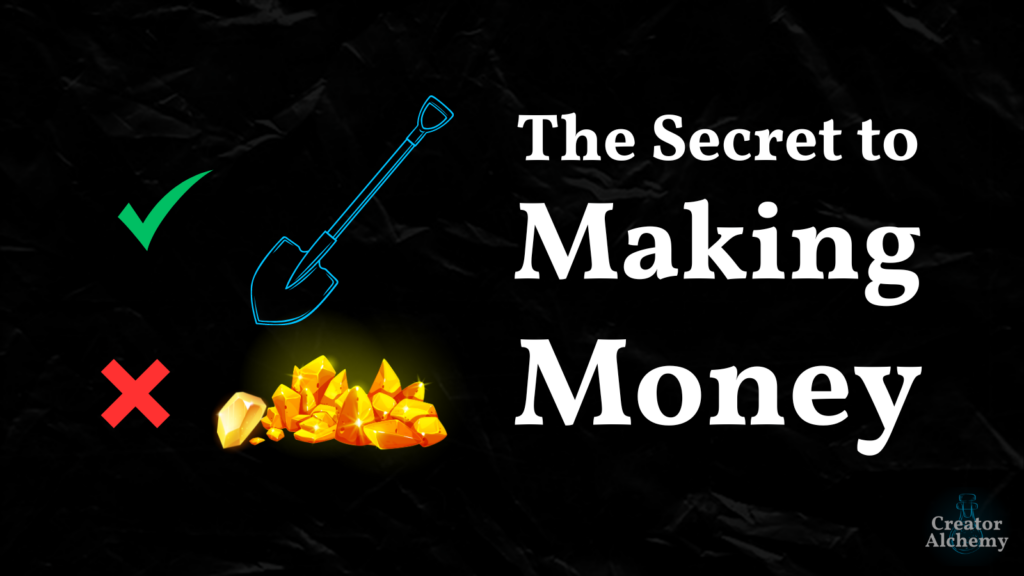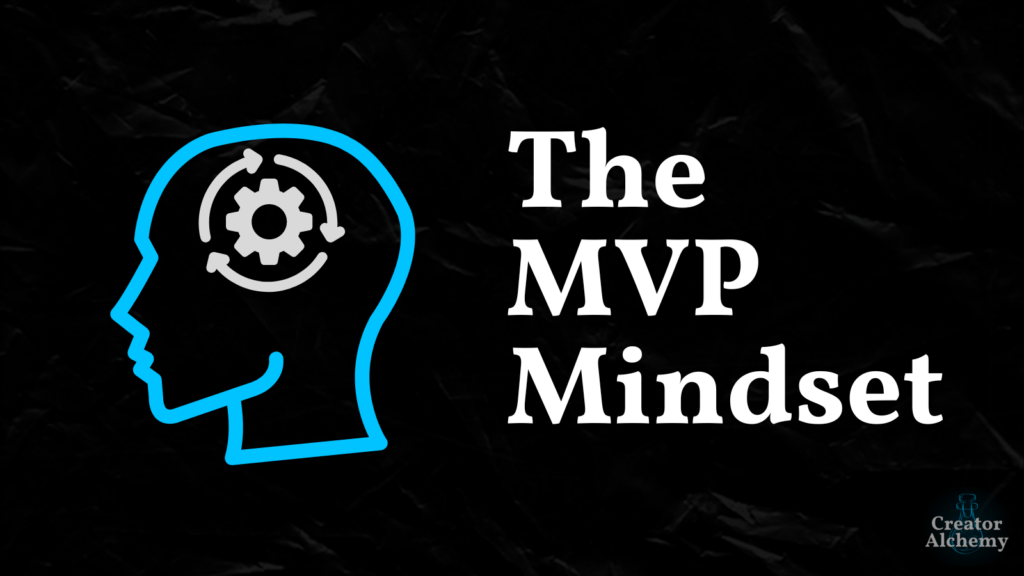I used to feel pressured to respond to every message I got.
This person took the time to send me a message—I owe it to them to respond.
But eventually, I got to the point where I constantly felt less productive and present, while I also felt more overwhelmed and scattered.
Then I heard a quote from Codie Sanchez that changed everything:
“Be easy to find, but hard to reach.”
I’m convinced this philosophy is a key to success.
I get messages and requests every day.
Some are fantastic—friends wanting to hang out, thoughtful readers who want to share how a piece resonated with them, or other opportunities that align with my values.

But most are requests that fall into less than fantastic categories (typically from random strangers) like:
- A 30-minute virtual coffee chat to pick my brain (aka, free coaching or consultation)
- Wanting me to link to their product (that I’ve never tried) in one of my high-traffic posts (for free)
- A “small fee” for guaranteed audience growth (of low-quality followers), dozens of leads a day (that are also low-quality), or media appearances (also probably low-quality)
I even get messages like this, where someone wants me to work for them for free (and burn my own hard-earned social capital in the process):

If I stopped to answer every single one, let alone accept any of them, I’d never get any of my own stuff done.
I also wouldn’t be able to accept awesome requests when they come my way.
And I don’t have anywhere near the audience size of many people in this space, so I can’t imagine what it’s like when you have an audience size of millions.
And if you’ve gained any level of recognition or success, you deal with this all the time, too.
This is the Availability Paradox in action—by being available to everyone who asks, we become unavailable to everyone who matters. But by being unavailable by default, we free ourselves to be available for what truly matters.
So if we want to be “easy to find, but hard to reach,” we have to learn to be unavailable by default.
Here’s what I mean…
•••
Give Yourself Permission to Be Unavailable
Being unavailable comes down to prioritizing yourself and setting healthy boundaries, which makes a lot of people feel guilty.
Being unavailable isn’t about being conceited or acting like you’re a celebrity who’s “too good” for people.
It’s about choosing who you want to fully show up for and what is worth your most precious resource—your time—to dedicate yourself to by saying “No” to everything else.
If it’s not aligned and not worth the units of your life to engage with, don’t.
You don’t owe people anything.
This guilt is a manifestation of one of the Four Horsemen of Fear—Fear of Ridicule—because we’re afraid of someone judging us if we tell them no.
There’s a great scene in the show New Girl, where Jess is trying to go on more dates, but struggles to end a bad date when she obviously doesn’t want to be there anymore.
Schmidt gives her a lesson in prioritizing and knowing her worth to get over the guilt of saying no…
Here’s the transcript if you don’t want to watch the video:
Jess: “Schmidt, these are such obvious rejections. I don’t want to hurt their feelings.”
Schmidt: “Do you just walk around all day thinking about other people’s feelings?”
Jess: “Yeah. Don’t you?”
Schmidt: “No. How do you get anything done?”
Jess: “It’s hard.”
Schmidt: “Okay, Jess. How can I put this? You’re the prize here. Okay? You are the last piece of pie, and all of these guys are the fat kids in the cafeteria, and I can say that because I used to be fat as a truck.”
Jess: “You really think I’m the last piece of pie?”
Schmidt: “Damn right you’re the last piece of pie…And who cares what these guys are feeling? You know, what do you feel? Jess, what do you want?”
Jess: “I’m the pie.”
Schmidt: “You’re the pie.”
Jess: “I’m the pie.”
Schmidt: “Say it again.”
Jess: “I’m the pie.”
Schmidt: “Say it again.”
Jess: “I’m the pie.”
Schmidt: “There you go.”
The simplest way to get over the guilt of being unavailable is to keep your priorities in the forefront of your mind and remember your own self-worth.
You’re the pie.
We feel better about ourselves when we spend our time on meaningful work and with people we care about—but the opposite is also true.
So if we want to improve our self-worth and spend more of our time on what matters, we have to learn how to be unavailable.
•••
The 3-Step Process to Being Unavailable
Step 1: Ignore 99% of requests outright
Most of the DMs and cold emails you get deserve to be ignored.
They’re typically low quality shotgun-style messages where that person (or bot) is spamming that same message to hundreds or thousands of other people. Ignore them. And if they keep spamming you, block them.

For the other cold requests that a human might have actually manually sent you, most will be one-directional in value:
”Hey, I’d love to pick your brain or maybe you could give me some free advice on something you talk about all the time that I could totally just Google, but I want to hear it directly from you in person. Also, I have nothing to offer in exchange, so I’m basically a human tick—and I’d love to gorge myself on your time, energy, and knowledge. Looking forward to talking soon!”
They’re not worth the 30 seconds it would take you to craft a quick respectful “No thanks.”
You’ll never get those 30 seconds back.
And if you took 30 seconds to reply to every one of these ticks, you’d never get anything worthwhile done.
Plus, if you let a tick attach to you, they’re a bitch to remove.
Better to avoid them altogether.
Step 2: Optimize for async
After you’ve filtered out most requests by ignoring them, you’ll be left with the few that still aren’t your top priority—but are worth a response.
For these, default to asynchronous communication.
“Hey, I’d love to jump on a quick Zoom coffee chat this week, are you free?” is a common well-intentioned request.
But unless it’s a top-priority request (someone you’d love to hang out with or an incredible opportunity), these will quickly fill up your calendar and keep you from being available to the few things that matter.
Even if you’re technically free in that you have a block of time that isn’t pre-scheduled, that doesn’t have to mean you’re “free” during that time to hang out.
My default response to these requests is, “Hey, appreciate the offer. I don’t have the bandwidth to jump on a live call, but I’m happy to chat here async so it’s more convenient for both of us.”
Most people are happy to keep it async, because they understand we’re all busy building cool stuff—and the people who don’t get it, don’t deserve your time anyway.
Moving to async also makes it easy to batch all your responses—pick a time each day or each week to respond to all your outstanding messages you’ve decided are worth responding to.
You’re also “teaching” people how to work with you. If someone emails you and you respond immediately, you’ve “taught” them to expect a quick response anytime they hit you up.
Do some emails necessitate a quick response? Sure. Do 99% of them? No.
This helps you stay focused on what matters throughout the rest of your day/week instead of getting constantly interrupted or keeping track of a bunch of meetings.
Step 3: Keep it brief
Once you’ve ignored most requests and moved the few that passed the filter to async, the last step is minimizing the time you spend responding
I try to only give 2-3 minutes for responses like this because it’s so easy for me to spend 20+ minutes trying to find articles, lay out step-by-step processes, and basically do a free consultation session every time someone asks me a question. I can’t do this if I want to get anything real done. So batching responses and only spending 2-3 minutes max on each helps me stay focused on what matters.
•••
Final Thoughts
The more successful you become, the more people are going to hit you up.
Being easy to find, but hard to reach is an exercise in prioritizing.
Embracing the Availability Paradox will free up your mental energy and time so you can focus on the few people and things that truly matter.
Now, when a friend asks if you’re free to hang out—you can answer with an enthusiastic, “Yes!” because you’ve kept your calendar clear.
Will some people call you rude, inconsiderate, or conceited? Maybe.
But who cares? The people complaining didn’t make the cut for a reason.
Read Next: If you want to learn more about the psychology behind why we feel constantly overwhelmed by unfinished tasks, check out this article on the Zeigarnik Effect.



